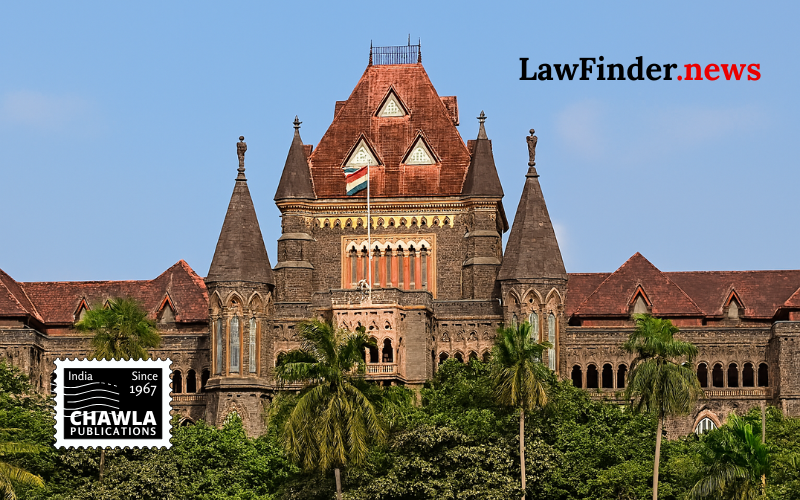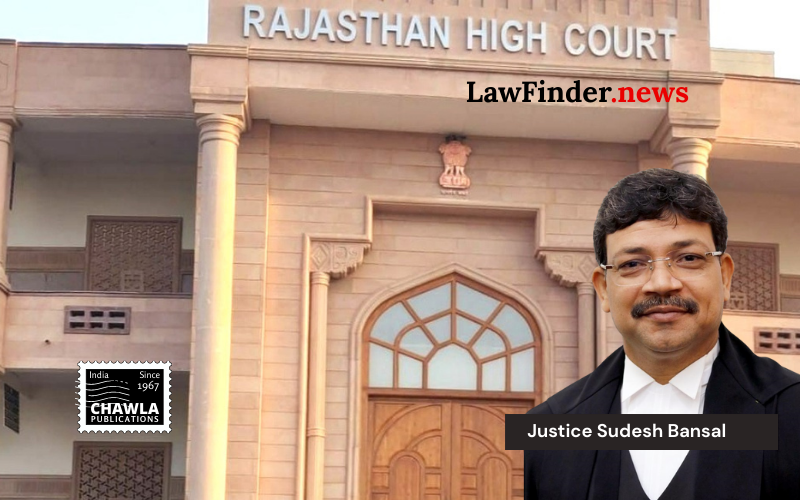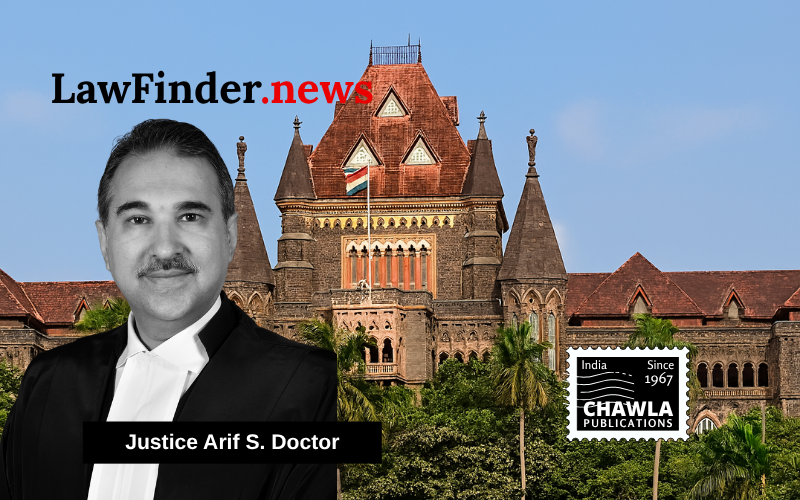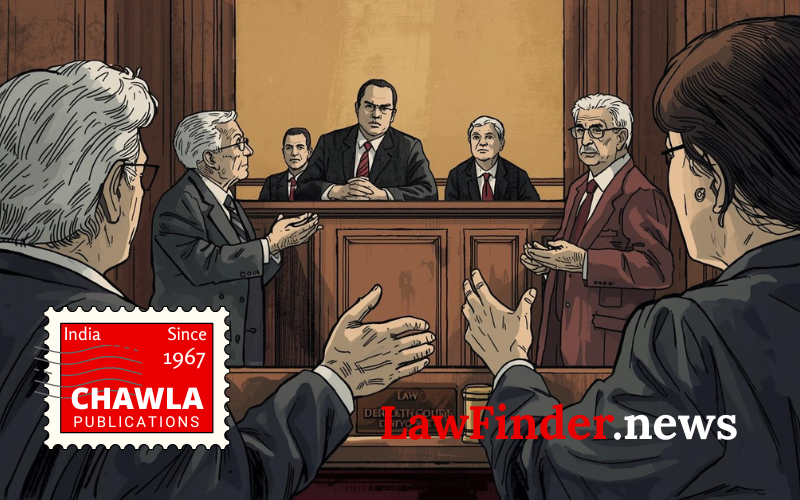Interplay Of Amended/Repealed Provisions Of The Motor Vehicles Act In Context Of Stare Decisis/Repeal/Prohibition
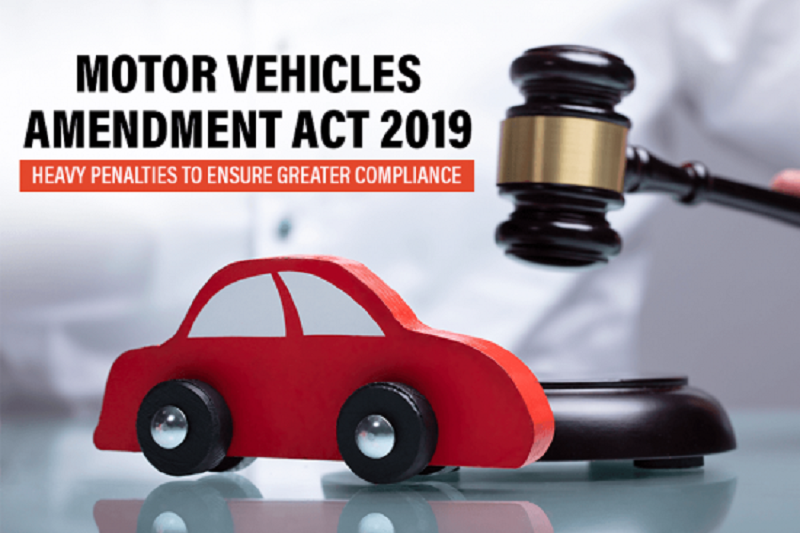
Rajesh Marimuthu, B.A.B.L.,Profession :- Senior Manager, Third Party Claims, General Insurance Industry,Email Id : raj4mkr@gmail.com
Date : 07/06/2024
I. INTRODUCTION:
"Yesterday's law may no longer hold sway. As repealed statutes release the grip of precedent on legal pathways".
1. The Parliament repealed the old Chapter XI of Motor Vehicles Act, 1988, and has substituted it with a new Chapter XI, amending a few provisions, inserting some new and also re-arrangement of some. It came into force on 01-04-2022. The object of the amendment is to ensure speedy delivery of justice to accident victims.
2. In terms of the earlier provision in Section 149(2), the insurer can raise only the defences enumerated therein while defending a claim petition. Even on successfully establishing the defences under Section 149(2)(a), still the insurer was directed to 'pay' the final award to the victim/or his heirs at the first instance and then to 'recover' the same from the insured/owner of the Motor Vehicle.
3. But now, under the newly introduced Section 150(4), the earlier Proviso to Section 149(4) which provided for a 'pay and recover' order, has been completely omitted, paving the way for absolute exoneration of the insurer from liability, if any one of the defences is successfully proved.
4. Based on the Proviso to old Section 149(4) in the Motor Vehicles Act, 1988, and even earlier provision in terms of Section.96 of the Motor Vehicles Act, 1939, numerous precedents granting `pay and recover' has been rendered. Now the question is whether the long line of precedents on `pay and recover' has become the rule of stare decisis and whether it would continue to operate in the light of deletion of the Proviso on `pay and recover' is the subject matter of this paper. This paper is an attempt to re-evaluate our perspective and aligning our thoughts on `pay and recover' with the intention of Parliament as well as the precedents of the Hon'ble Apex Court and High courts in India.
II. Removed Provisions of Section 149(4) & (5) Motor Vehicles Act 1988:
Proviso to sub. Section 149(4) Provided that any sum paid by the insurer in or towards the discharge of any liability of any person which is covered by the policy by virtue only of this sub-section shall be recoverable by the insurer from that person.
(5) If the amount which an insurer becomes liable under this section to pay in respect of a liability incurred by a person insured by a policy exceeds the amount for which the insurer would apart from the provisions of this section be liable under the policy in respect of that liability, the insurer shall be entitled to recover the excess from that person.
III. THE MOTOR VEHICLES AMENDMENT ACT, 2019 - IMPACT OF SECTION 150:
5. In the newly introduced Section 150, the above extracted Proviso for recovery in Sub-Section 4 stands omitted and Sub Section 5 of Section 149 of the Motor Vehicle Act, 1988, is completely replaced. Now from the amended Section 150, it is evident that the insurer shall not be liable to pay any compensation for the breach of the conditions listed under Section 150 (2).
6. In the realm of law, amendments to existing provisions in a statute are a common occurrence, reflecting the evolving societal needs. Removing or altering provisions through an amendment act essentially signifies a shift in the legal landscape.
7. One of the fundamental principles of law is that judgments are based on the law as it stands at the time of adjudication. When a particular provision is removed or altered through an amendment, it fundamentally changes the legal framework within which judgments are rendered. Therefore, if a provision has been amended after a judgment, the amended provision would typically govern similar cases in the future. This principle ensures consistency and fairness in the application of the law, preventing outdated provisions from dictating legal outcomes.
8. However, the ramifications of such amendments on previous judgments, and the principle of stare decisis, which emphasizes adherence to precedent, are complex and require careful consideration. This raises important questions about the applicability of previous judgments in post-amendment scenarios. In essence, do these judgments retain their precedential value and would still be the rule of stare decisis or are they rendered obsolete by the legislative change?
9. The Supreme Court has addressed this issue in several landmark cases, guiding how courts should approach the application of stare decisis in the context of statutory amendments. When a statutory provision is repealed or amended, judgments based solely on that provision may lose their precedential value. Courts interpret the law following the amended or current provisions, giving due regard to legislative intent and textual analysis.
10. This principle underscores the dynamic nature of legal precedent and the need for Courts to adapt their interpretations in response to legislative changes. While past judgments may still be cited for their persuasive value, they cannot be mechanically applied in cases governed by the amended law. This ensures that the administration of justice remains aligned with current legal standards and societal norms.
IV. STARE DECISIS ON `PAY & RECOVER' AND NEW SECTION 150 OF MOTOR VEHICLES ACT 1988:
11. Stare Decisis is 'to stand by things decided'. Stare Decisis is a legal principle that directs courts to adhere to previous judgments of higher Courts while resolving a case with allegedly comparable facts.
12. The following Judgments rendered under the old/deleted provisions of Motor Vehicles Act, 1988, are attempted to be portrayed as a "stare decisis" and that no insurer can escape from the liability and `Pay and Recovery' is the only permissible remedy in liability contested matters.
a. AIR 1959 SC 1331 British India General Insurance Co Ltd v. Captain Itbar Singh
b. (1987) 2 SCC 654 Skandia Insurance Company Ltd v. Kokilaben Chandravadan
c. (2001) 4 SCC 342 New India Assurance Co Ltd v. Kamala
d. (2003) 3 SCC 338 United India Insurance Co Ltd v. Lehru
e. (2004) 3 SCC 297 National Insurance Company Ltd v. Swaran Singh
f. 2012 (1) TNMAC 394 (MHC) Iffco Tokyo General Insurance Company v. A Jafer Sidiq
13. All the above cited judgments have a core discussion on the 'pay and recovery' provision based on the Old Section 96 of Motor Vehicles Act, 1939 and Section.149 (4) & (5) of Motor Vehicles Act, 1988 and hold the insurer liable to satisfy the final award at the first instance just because of issuance of policy of insurance even though its liability may be nil.
14. It would be prudent to refer the decision spelt out by Hon'ble Supreme Court in Kamala's case, that given the payment already made by insurer, the Court coined the action as Pay & Recovery.
15. In the case of Swaran Singh, dated 05/01/2004, the very first paragraph sets out the legal question as "interpretation of Section 149(2)(a)(ii) vis-a-vis the proviso appended to sub-sections (4) and (5) of the Motor Vehicles Act, 1988, is involved in this batch of special leave petitions". The Supreme Court ultimately upholds the intent of Section 149 and concludes that this order may not be considered as a precedent.
V. 'PAY AND RECOVER' NOT AN ABSOLUTE RULE - NOT A SETTLED LAW:
16. It is pertinent to note that in **National Insurance Company Limited v. Parvathneni and another - dated 18/09/2013** the question of law referred to the Full Bench of Hon'ble Supreme Court of India was, if the insurance company has no liability to pay at all, then, in our opinion, it cannot be compelled by order of the Court in exercise of its jurisdiction under Article 142 of the Constitution of India to pay the compensation amount and later on recover it from the owner of the vehicle. "When a person has no liability to pay at all how can it be compelled to pay?"
17. However, the Hon'ble Full bench decided that given the smallness of the amount involved, the same was not entertained under Article 136 of the constitution. The special leave petition was dismissed accordingly. The question of law raised in the petition is still kept open to be decided in an appropriate case.
18. Every amendment has its effect and power from the date of enforcement (Retrospective/Prospective/Modification). By taking a holistic view, we cannot claim that the issue is already settled.
VI. STARE DECISIS - OPEN ENDED DISCUSSION:
19. There are also a few other Important Judgments of the Hon'ble Supreme Court of India and the Madras High Court which should not be ignored while interpreting the law on `Pay & Recovery' Proviso and nil liability on the insurer.
(a) 2013(2) TN MAC 420 (SC) United India Insurance Company Ltd. v. Sujata Arora & Others.
20. Driver of Vehicle had Fake License established by Insurer. Tribunal Exonerated Insurer and liability was fastened on Owner/Insured. High Court reversed the findings and fastened liability on the Insurer holding that even in fake licence case insurer is liable. The Hon'ble Supreme Court overturned the decision of the High Court and restored the Award of the Tribunal passed on the owner/insured by stating that holding a valid license is requirement of law. Fake license in the above appeal was proved and would exonerate the Insurance Company. The Supreme Court discussed and exonerated the insurance company by relying on its previous decisions namely National Insurance Company Ltd. v. Laxmi Narain Dhut, 2007 (1) TN MAC 301 (SC) : 2007 (2) T.A.C. 398; and Jawahar Singh v. Bala Jain and other, 2011 (1) TN MAC 641 (SC) : 2011 (3) T.A.C. 12, where it has held that in case it is found that the offending vehicle was driven by a driver who was either holding no licence or a fake licence, then it amounts to a violation of terms and conditions of Policy and in that circumstances, no liability can be fastened on the Insurance Company.
(b) 2017(2) TN MAC 763 (SC) M.S. Middle High School v. HDFC ERGO General Insurance Company. Ltd.-
The Supreme Court confirmed the order of the High Court which rightly held that liability cannot be fastened on Insurer once there is a breach of conditions of policy. The Supreme Court further declared that the contrary view in Augustine, v. M.V. Ayyappankutty and Ors., 2015 (1) TN MAC 740 (FB) (Ker.) cannot thus be held to be valid and is disapproved to the extent holding that insurer was liable even if there was a breach of conditions of the policy.
(c) 2020 ACJ 3000 (SC) Beli Ram v. Rajinder Kumar-
The point of law for consideration was about expired license which was not renewed by the driver for three years while driving a commercial vehicle.
High Court absolved the Insurer, fixed liability on the Employer/Owner and directed him to pay the amount under the Workmen's Compensation Act. The Hon'ble Supreme Court upheld the order of the High Court confirming that lack of care by the driver (as Under Sec 3 of the Workmen's Compensation Act) in not renewing his license and confirmed the award against the Employer/Owner. The Hon'ble Supreme Court further held that violence should not be done to the clear and plain language of the statute.
(d) 2022(1)TNMAC 135(MHC) Ananthi v. Venkatesan.
The Owner/Insured/Driver did not possess a Driving License and the Tribunal exonerated the insurance company for violation of the terms and conditions of the Insurance policy. The exoneration order was upheld by the Madras High Court.
21. All the above decisions were delivered after Swaran Singh's case by the Hon'ble Supreme Court and Madras High Court. As mentioned earlier in National Insurance Company v. Parvathneni, the larger bench, of the Hon'ble Supreme Court of India kept the question of law open about liability even under the repealed proviso to Section 149(4) of the Motor Vehicles Act 1988.
22. Thus, the Rule of `Pay and Recovery' was not a conclusively settled law even in the pre-amendment period considering various discussions extracted above. Based on the provisional efficacy and the circumstances of accident victims 'pay and recover' decisions were made. If the same is continued even after the Amended Motor Vehicles Act, 2019 it would only be defeating the legislative intent. 'Out with Old, In with the New'. Repealed laws pave the way for fresh perspectives and legal breakthroughs.
VII. UNDERSTANDING REPEAL:
23. The word `repeal' simply would mean delete, revoke, abrogate, substitute or cancel. Any statute or a provision in a statute may be repealed in whole or in part, either expressly or impliedly by enacting matters contrary to and inconsistent with the prior Act or provisions.
Sections 6 to 8 of the General Clauses Act, 1897, enable us to understand how the Act/Statute/Regulation can be Repealed/Re-enacted/Revived/Substituted including Textual amendments. The Legislature had applied the Substitution process for the Repeal of Old Provisions, which ultimately paves way for Implied Repeal.
VIII. DOCTRINE OF IMPLIED REPEAL:
24. 'LEGES POSTERIORES PRIORES CONTRARIAS ABROGANT'.
The general meaning of this maxim is that "later laws abrogate earlier, contrary ones", meaning that, where two laws or legal instruments conflict, the latter one should be adopted. It means that a later statute that is repugnant to an earlier statute is deemed to have abrogated the earlier one on the same subject matter or where the provision of the later document is contrary to the earlier one, the earliest must be considered as repealed. The doctrine of implied repeal is invoked when the legislature demonstrates a clear intention through subsequent legislation to supersede earlier enactments.
25. The Doctrine of Implied Repeal is applied through a meticulous analysis of conflicts, legislative intent, and the scope of both enactments. Courts must carefully scrutinize the provisions of both laws to ascertain implied repeal. This principle serves as a vital tool for maintaining legislative coherence and upholding parliamentary supremacy.
IX. DOCTRINE OF IMPLIED PROHIBITION:
26. Doctrine of implied prohibition is about maintaining the balance and purpose of legal texts. It suggests that legal documents, particularly constitutions and statutes, should be read not only for what they explicitly state but also for what they implicitly forbid. This approach helps to preserve the intended structure and function of legal and governmental systems. The doctrine serves as a safeguard against overreach and abuse of power. By implying prohibitions where necessary, it acts as a check on various governmental and institutional actions, ensuring they remain within their lawful bounds. This is particularly important in complex legal systems where not every prohibition can be explicitly detailed in statutes or constitutions.
27. The doctrine of implied prohibition is a fundamental principle in legal interpretation, essential for maintaining the integrity and balance of legal systems. By inferring prohibitions that uphold the explicit grants of power, it ensures that laws function as intended and that the structure of governance remains coherent.
28. From the above analysis it can be inferred that in the wisdom of the Legislature, the old provisions are repealed. The Courts on interpretation of new sections cannot traverse beyond wordings and enlarge the scope of `Pay & Recover' which may fall on the Doctrine of Ultra Vires.
X. ULTRA VIRES & INTRA VIRES:
29. 'Ultra Vires' is a Latin term meaning "beyond the powers". Ultra vires is a Latin phrase used in law to describe an act that requires legal authority but is done without it. Its opposite is 'Intra vires'. An act is done under proper authority. Acts that are intra vires may equivalently be termed 'valid' and those that are ultra vires termed 'invalid'.
30. When a provision is repealed by an amendment, the doctrine of implied prohibition ensures that fundamental principles and objectives of the law are preserved.
31. Any actions that deviate from these implicit prohibitions can be considered ultra vires and thus become impermissible by law. As they would exceed the authority granted by the legal framework and undermine fundamental legal principles.
XI. CAUSUS OMISSUS
32. This Maxim typically refers to situations where a law exists but fails to address certain circumstances or contingencies and only the Legislature can fill up the omissions by passing appropriate Rules/Amendments via Repeal. The Supreme Court in many Judgments upheld the Causus Omissus Maxim. It was categorically held that Legislative Causus omissus cannot be supplied by judicial interpretative Process in 2000(5) SCC 515 - Commissioner of Sales Tax M.P. v. Popular Trading Company for the Amended Provisions/Rules/Act. Accordingly, if a statute omits a situation scenario, the courts shall not attempt to supply the omission by inserting words into the statute.
XII. LIMITS OF BENEFICIAL LEGISLATION:
33. Even beneficial laws must adhere to the constraints of statutory language, focusing on the need for a balance between legislative intent and the literal interpretation of the law. The principle that "the law is what the text says" underpins the basis of Judgments rendered by Courts. While beneficial legislation plays a critical role in advancing societal goals, it cannot assume supremacy over the unambiguous text of statutory law drafted by the Legislature with specific language that outlines their scope and application. The Court cannot overstep the framework.
XIII. CONCLUSION:
34. The core point of discussion is when there is no proviso/power conferred under the Amended Motor Vehicles Act, can the precedents on 'pay and recover' still be applicable?
It can be confidently stated from the above analysis and discussions about various decisions, that the Hon'ble Supreme Court of India and various High Courts have not put an iron curtain even for the interpretation of provisions of the old Motor Vehicles Act 1988.
35. Laws are dynamic and subject to change through Legislative amendments, precedents of Courts and evolving societal norms. Courts, including the Hon'ble Supreme Court, may revisit and reconsider legal issues in the light of new facts, circumstances, legal arguments, or changes in the law.
Just because the Court addressed a particular issue in the past does not mean that its ruling or interpretation is set in stone or applicable to all future situations, especially if there have been subsequent legislative changes or developments. Evolving and adapting to amendments made in the statutes to consider their implications is a prudent practice in the legal field to ensure compliance and effective advocacy.
36. Hence making a parallel and or symmetric connections that judgments rendered under the old Motor Vehicles Act are `tailor-made remedies' to satisfy the legislative wordings found in Section 150 of the Amended Motor Vehicles Act, for `PAY and RECOVERY' is not the best way of interpretation of statutes. As already discussed in Para 32 - Legislative Causus omissus cannot be supplied by the judicial interpretative Process.
37. Before interpreting the above tailor-made remedies in New Motor Vehicles as precedents, let us introspect ourselves by asking ourselves a question as to whether it will be fair to say that the Hon'ble Supreme Court has discussed the liability of Insurer + Pay and Recovery aspect (before many decades) with a thought process, that in future, the Legislature will repeal the old provisions and introduce new provisions in the Motor Vehicles Act and also predicted the wordings in Section 150 of Motor Vehicle Amended Act. Such a far-fetched interpretation made to permit an impermissible action of `pay and recovery' under New Section 150 of the Motor Vehicles Act is unheard of in the corridors of Law.
38. To conclude, it would be fitting to re-call what Justice Frankfurter said in US v. International Boxing Club, "The Doctrine of precedent is not an 'imprisonment of reason'.". Justice Brandeis said in State of Washington v. W.C. Dawson and Co. "that stare decisis is merely a wise rule of action and is not a universal rule, an inexorable command".
© Chawla Publications (P) Ltd.
